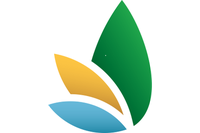Pescadores de Plastic
from 01/09/2019 until 01/09/2020
School children, as citizens scientists, participate in defining research questions, designing and implementing the enquiry steps, and analyzing, interpreting, discussing and communicating results. Under the supervision and support provided by the researchers, each group of citizen scientists select a river reach as a study reach where they will carry out the sampling campaign following the sampling guidelines and using the sampling kit provided. Sample processing of macro- and microplastics will be completed by citizen scientists, using the the standarized methods and material provided, learned during the different workshops organized before and after the sampling. Finally, they will analize, discuss and validate the results obtained with the coordination team, before sharing and communicating them with the other schools involved in the project. During this process, we expect to promote the scientific culture among school children, to increase citizen engagement in scientific monitoring, and to upraise the public awareness of the impact of plastic pollution in aquatic ecosystems and the role of rivers in their spread.
Aim
To assess the presence of plastic pollution in our rivers and investigate the role of these systems as transporters of plastic waste from terrestrial to marine ecosystems through citizen science carried out by school children. This way, we expect to achieve at the same time the objectives of promoting scientific culture among school children, to increase citizen engagement in scientific monitoring, and to upraise the public awareness of the impact of plastic pollution in aquatic ecosystems and the role of rivers in their spread.
Created Sept. 23, 2020, 9:11 a.m.
Updated Sept. 23, 2020, 9:11 a.m.
